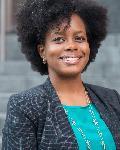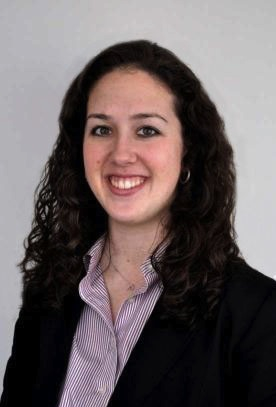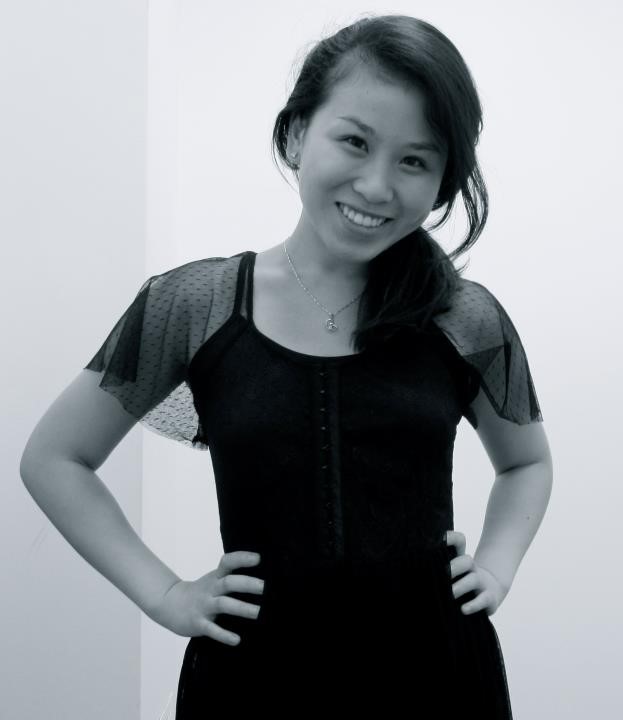Contributor: Alice Liu
Work and Life is a two-hour radio program hosted by Stew Friedman, director of the Wharton Work/Life Integration Project, on Sirius XM’s Channel 111, Business Radio Powered by The Wharton School. Every Tuesday from 7 to 9 PM EST, Stew speaks with everyday people and the world’s leading experts about creating harmony among work, home, community and the private self.
On Work and Life, Stew Friedman spoke with current Wharton MBA students about how young women are experiencing and thinking about their careers, families and future lives. In the first segment, Friedman chatted with Nohemie Sanon (WG ’15) and Pamela Freed (WG ’14) about how they perceive the current role of women in business schools and in the workplace as well as what they hope to see change in the future.
Following are edited excerpts of Sanon and Freed’s conversation with Friedman.
Stew Friedman: What prompted you to come to the Wharton School?
Nohemie Sanon: For me it was about career progression. I was at a certain level in my career where I was ready to make the next move, and I wanted to make sure that I had the best education possible to help me get to that next level.
For me it was about career progression. I was at a certain level in my career where I was ready to make the next move, and I wanted to make sure that I had the best education possible to help me get to that next level.
Pamela Freed: I knew that I wanted to go to business school ever since I was an undergraduate. My father had gone to business school and seeing how much it helped his career really influenced me. After three years of working at JP Morgan after college, I started to feel like my career was going well, but I knew that business school would help accelerate it.
 SF: Who are the important people – the key sponsors or mentors – who have influenced you and helped you get here?
SF: Who are the important people – the key sponsors or mentors – who have influenced you and helped you get here?
NS: The key influencers would definitely be my mom, my family, and also mentors at work, such as my boss and other colleagues who really wanted to push me to make sure that I attained that next level.
PF: My parents definitely had a big influence. In particular, I think that my mom had probably a bigger influence on me than anyone else. She had a long career working in media, and growing up, I watched her passion for her work and how it gave her drive. That was really inspirational for me, and I always knew that my career would be something that would be very important in my life.
SF: What was the most surprising thing to you when you got here.
NS: I was struck by the ratio of men to women. The class of 2015 has about 42% women, and I was excited to find that number so surprisingly high. As you walk through the halls of this school you don’t feel like it’s 42%, you actually feel like it’s 50/50.
PF: I think I was surprised by how much I learned outside of the classroom. One of the most rewarding things for me has been the extracurricular opportunities. I’ve been fortunate to serve as co-president of Wharton Women in Business this year, and I’ve learned far more from that than any class I’ve taken. As Nohemie mentioned, Wharton has 42% women, which is more than any other top business program, so the women’s community here is very strong.
SF: How has that particular experience shaped your thinking about the future?
NS: I think it’s not only very inspiring, but it also gives me hope that more women will eventually rise to the top of the ladder in a variety of industries. It’s a big signal to me that it’s possible for women to achieve that level.
PF: At Wharton, there’s definitely a sense that women are equal to men. You see just as many women participating in class as men. Women are receiving academic honors at the same rate as men and are going on to as good careers as the men here are. We’re equals while we’re at Wharton, I’ll be interested to see what happens when we leave Wharton, and how my male and female peers perceive their treatment in the workplace.
SF: The ratio of women at the top of organizations is not nearly the same as it is at the entry level. What do you see happening within companies today that is really going to make a difference in changing this gender inequality?
PF: I hope that companies will be able to implement more policies to help women find ways to stay, particularly after they have families. At Bain & Company for example, they have very flexible work policies – flextime and sabbaticals – for women who have had children, and they claim that 80% of women who are partners have taken advantage of some of these flex policies. If over time companies are able to roll out more flexible policies and make it the norm to take advantage of these programs, then hopefully more women will be inspired to stay.
SF: And are you optimistic or pessimistic about that?
PF: I’m definitely optimistic. I see senior female role models that I can aspire to be like someday.
SF: That’s so important to have people you can look up to and say, “Yes, she did it. Therefore, I can do it too.” Nohemie, was this an important consideration when you thought about your summer plans?
NS: Yes. Throughout the time that I was recruiting I’ve met all different kinds of women who made it a point to tell me about the infrastructure set up to support working mothers – for example, a facility where you can bring your child in the morning and then see them at lunchtime. It’s also incumbent on us as women throughout our careers to lean in and open ourselves to opportunities as they reveal themselves to us, especially after we have our children and raise them. Very often we tend to not accept and not be willing to step into available new roles.
SF: Why do you think that is? Why do you think women hold back from opportunities to advance their careers?
NS: Maybe, because of fear of not being able to provide for their family in the way that they want to. You want to be there for your family not only financially, but also emotionally, and you may hold back from opportunities because you’re afraid that you’ll miss important things like your children’s recitals.
SF: Is it different for men and women at Wharton? Do you travel in different worlds?
PF: I don’t really think it’s that different for men and women here. I think that Wharton is a very equal place and if anything I think that women may have an advantage here, because we do have Wharton Women in Business and all that it provides. All 700+ women at Wharton are automatically members. We do many things – we bring thought leaders to campus, we have workshops to help women with negotiations and communication, we have connections with alumnae, we have an annual conference with more than 400 attendees, and we even have social events such as golf workshops to make sure that women will be able to keep up with men in the workplace. Men are invited to many of these things but generally you see more women taking advantage of these offerings so I think that’s something that makes the women’s community very strong.
SF: As you dream about your future, what’s the most important change that you want to see happen in the world over the next 15-20 years?
PF: Something that Debora Spar, the president of Barnard College, talked about at a recent Wharton Women in Business event is the expectation that women place on themselves for perfection – a perfect career, a perfect family, a perfect life. I hope that in the future women will feel s less pressure to do everything perfectly.
SF: How might men help with this goal?
PF: I think Sheryl Sandberg and Anne-Marie Slaughter both emphasize the importance of partners and making sure that each partner is sharing the housework and sharing in child raising, for example. It’s important that both partners are part of the conversation about how each can each integrate work and life.
SF: What about you, Nohemie? What do you wish to see change in the next 15-20 years?
NS: I would agree with Pam, and I would also add that I wish to see a world where women allow themselves to be more involved in their careers if they so choose and also more involved at home if they so choose.
SF: What’s the one thing we could be doing at this school to make that happen faster?
NS: I think that women as a community could encourage other women to take a bigger role in their careers and/or at home.
PF: I would love to see more men joining these conversations, attending more Wharton Women in Business events, and talking about integrating work and life and how men can help women get ahead.
Visit the Forum tomorrow for the second segment of Stew’s conversation with current Wharton MBA students, Kristina Milyuchikhina (WG ’14) and Meaghan Casey (WG ’15), about what it’s like to start a family while in business school and the importance of choosing a partner who not only shares parenting care, but also shares your values and ambitions.
Join Work and Life next Tuesday, February 25 at 7 PM on Sirius XM Channel 111 for conversations with Deika Morrison (W ’94, WG ’08) and Jerry Jacobs, Professor of Sociology at the University of Pennsylvania,about work and life in different labor markets. Visit Work and Life for a full schedule of future guests.
About the Author
 Alice Liu is an undergraduate senior studying Management at The Wharton School and English (Creative Writing) at the College of Arts & Sciences.
Alice Liu is an undergraduate senior studying Management at The Wharton School and English (Creative Writing) at the College of Arts & Sciences.
Leave a Reply